Teachers are often remembered for the impact they have in the lives of learners of all ages, but rarely are they celebrated for the foundational roles they play in the development of people of character and distinction.
The College of Education consists of a single department, the department of education and human services, and five distinct academic programs: counseling psychology, educational leadership, school psychology, special education and teaching, learning and technology (teacher education and instructional technology). In addition, the college supports a set of interrelated programs like Centennial School and the office of professional certification.
Meet a few educators, researchers, and scholars actively pursuing degrees in the college and making considerable impact on campus and in our community.
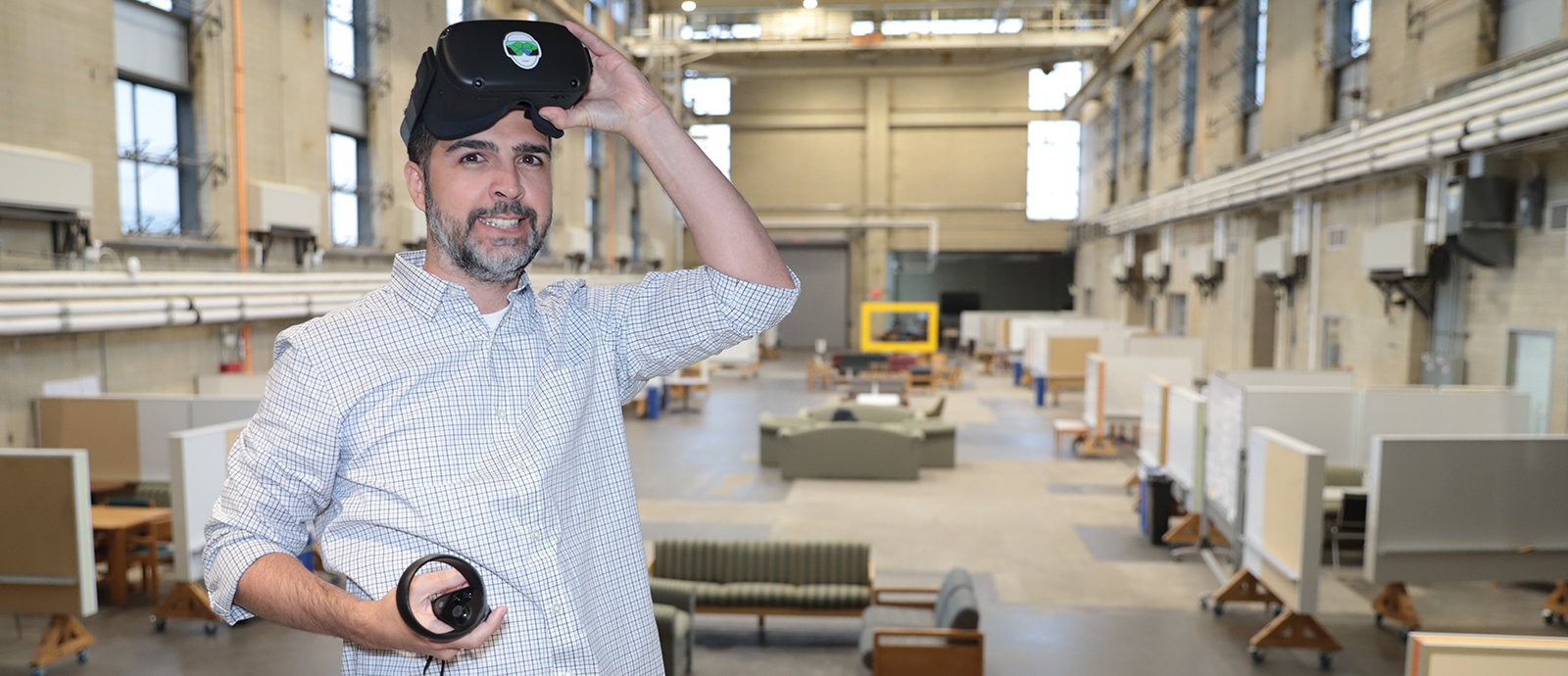 Robson M. Araujo-Junior
Robson M. Araujo-Junior
Sixth-year Doctoral Student
Teaching, Learning, and Technology (TLT)
Araujo-Junior remembers playing games on an Atari as a child and using all the gaming systems from Nintendo to PlayStation. While playing video games, he learned English and French. Since then, he's been driven by the dream of helping people learn as he did. After earning his undergraduate degree in English language and literature at a Federal University in Brazil, Araujo-Junior began teaching English. Soon he earned a master’s degree and was working as a professor. But after a few years, he felt stagnant.
“Quality of life starts to decline when we no longer try to expand our knowledge,” he says. That’s when he entered the Lehigh TLT program to “share with the world how everyone can learn anything by playing video games.” Araujo-Junior co-founded the Lehigh VR working group and soon transformed it into the Lehigh RiVR (Research in Immersive Virtual Reality) lab, which has designed and developed games and immersive virtual field trips. The Lehigh RiVR has partnered with environmental education centers in the region. Together, they create VR games focused on nature to inspire action.
“Virtual reality is visceral, offering the power of presence, which helps students feel, learn, and act, not just memorize,” Araujo-Junior says. His first headset VR game had students fly a drone over the Lehigh Valley and visit several locations of environmental interest. The next game is a multidisciplinary immersive exploration in a kayak adventure to learn about the Lehigh River watershed. Currently working on two other games, Araujo-Junior is focused on mentoring students to ensure the project is self-sustainable and keeps growing.
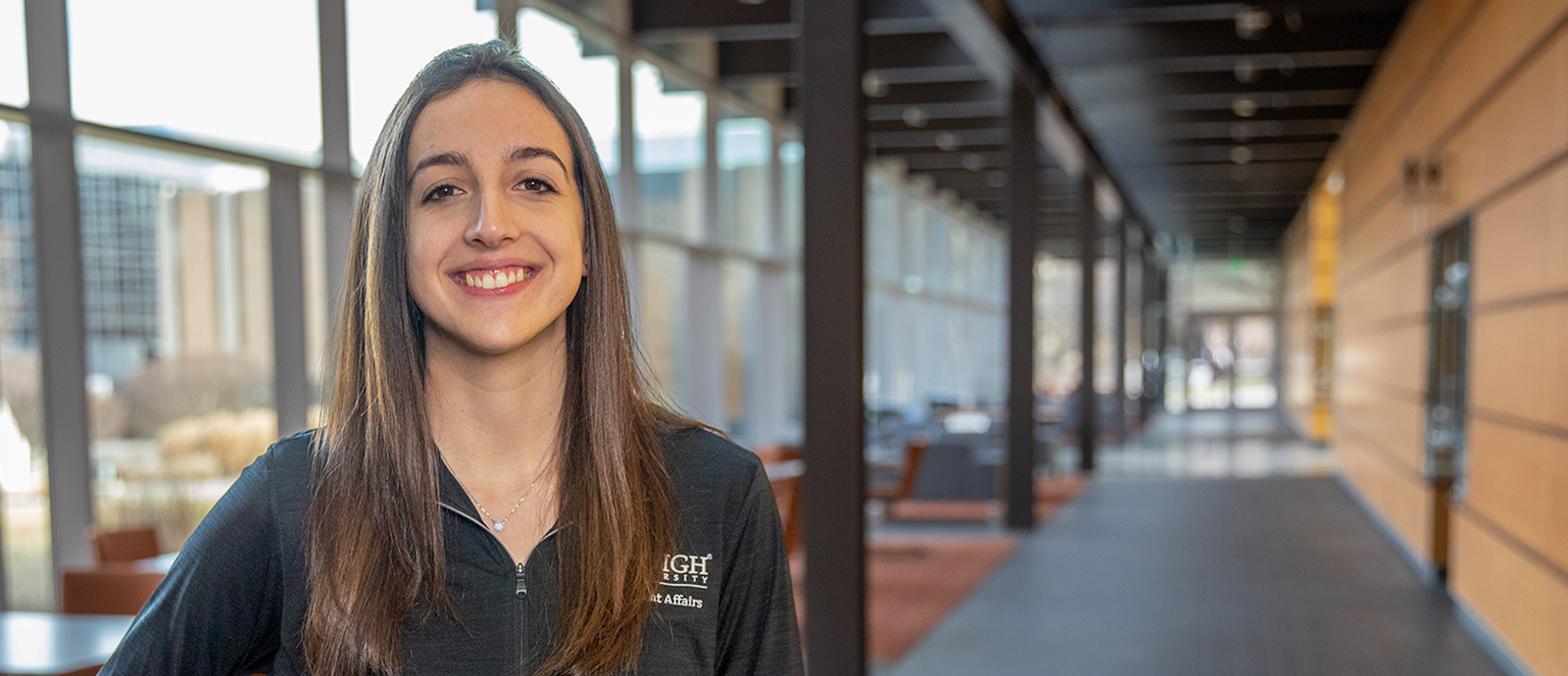 Katrina Durrwachter
Katrina Durrwachter
Second-year Master’s Student
School Counseling
While on a pre-physical therapy track as an undergraduate, Durrwachter took classes that discussed the importance of mental health while also working as a tutor for a student with autism. Both experiences resonated deeply with her, so she decided to pursue school counseling since it aligned more closely with those skills.
In Lehigh's school counseling program, she has completed a practicum and internships at several districts across the Lehigh Valley whose populations are drastically different in racial and socio-economic makeup. She has thrived in each, quickly building rapport with students of all ages and backgrounds and helping them to set goals while finding individualized approaches to reach those goals. Some of her work has included helping elementary school children to develop coping skills, holding group sessions with middle school boys to build social connections, and helping high schoolers explore college and career pathways.
Durrwachter's experiences through the school counseling program closely relate to her graduate assistantship on campus, where she works with student-athletes. Despite her affinity for track and field, she works with all genders and teams, helping athletes with their approaches to achieving academic and overall success. Whether at the university or K-12 setting, Durrwachter attributes relationship building as the key to helping students succeed.
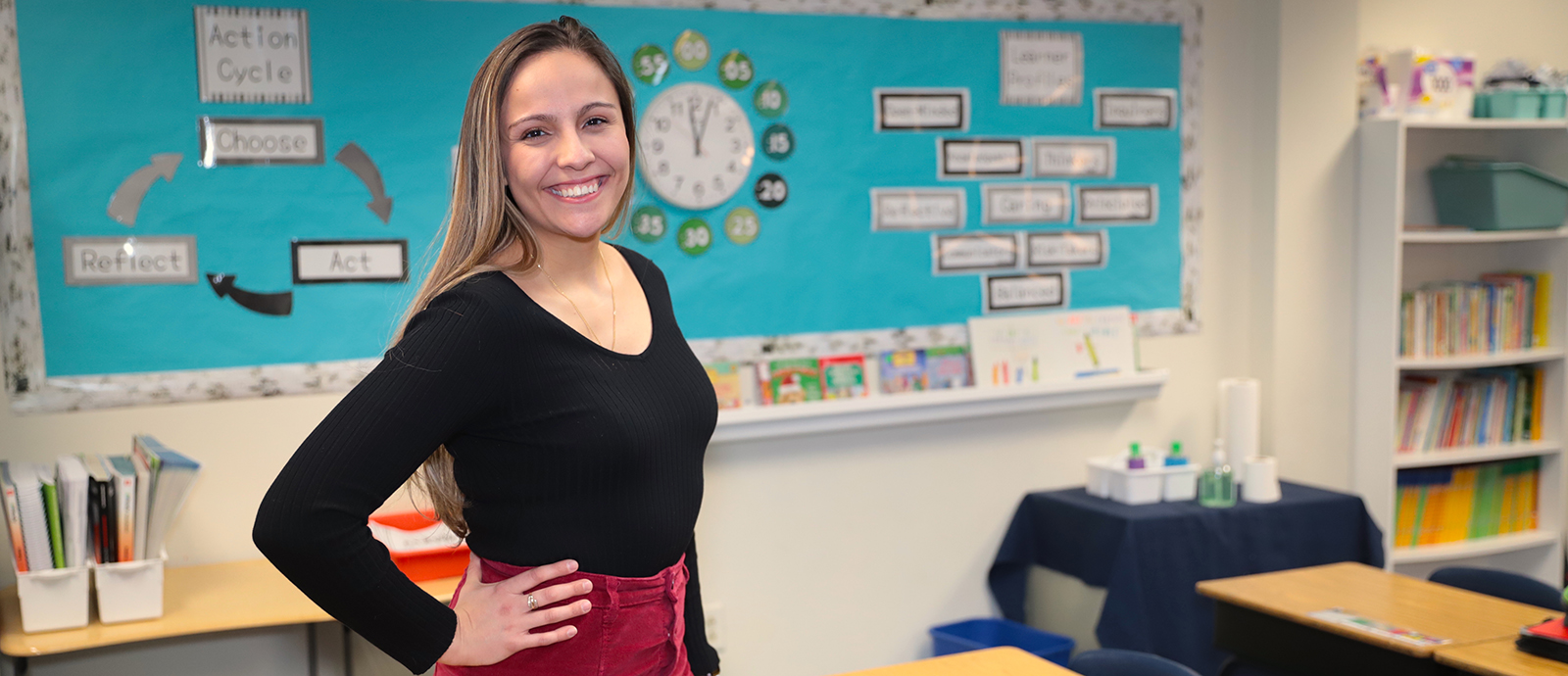 Carolina Collazos
Carolina Collazos
Second-year Master’s Student
Elementary Education and ESL Certification
When Collazos arrived in New York City from her native Colombia, she was tested and moved up from tenth grade to eleventh and placed in ESL classes. While students often require years of English language support, Collazos was a quick study and tested out of ESL classes in nine months. But she remembers the challenges as she studied to earn her regents diploma.
“While I passed English, math, and science easily, I struggled as a non-native speaker with history as I memorized the people, dates, and important court cases,” she says. Another challenge she faced was the stark differences between her private Catholic school in Colombia and the social, economic, and environmental injustices at her school in Queens.
Her experiences laid the groundwork for her current path as she supports ESL students enrolled in the International Baccalaureate program at Lehigh Valley Academy. She pulls students from class for one-on-one and small group sessions twice a day. “I assist students from Egypt, India, and the Dominican Republic and love working with them,” she says.
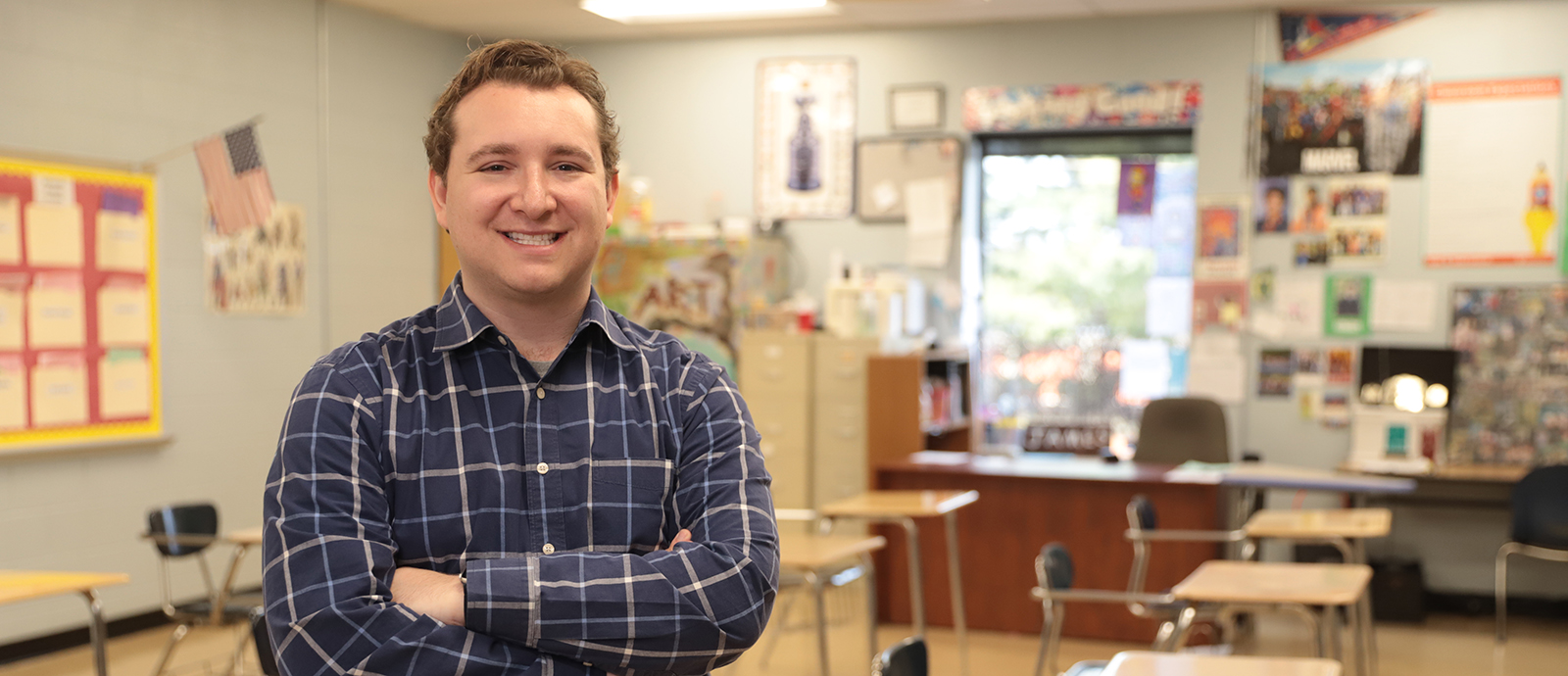 Joshua Reznik
Joshua Reznik
Second-year Master’s Student
Special Education with Teacher Certification and Teacher Associate at Centennial School
Reznik is in one of five high school classrooms at Centennial School, a training ground for select special education master’s students who work hands-on with students with emotional and behavioral needs and autism spectrum disorder. Reznik brings a unique perspective to this program, having already earned an undergraduate degree in communications from Temple and a law degree from Michigan State. “I am specifically interested in education policy,” he says. “Only when we have an immersive understanding of an issue are we able to bring positive change.”
He hopes to fuse his law and education training and be a voice in special education for best practices and policies. He is on track too with his recent recognition as a Keystone Technology Innovator for infusing technology into lessons. He recently had students hold a mock trial in the school’s immersive learning center, a 360 degree projection space — one of the few on the entire East Coast — on a project related to their reading of The Crucible.
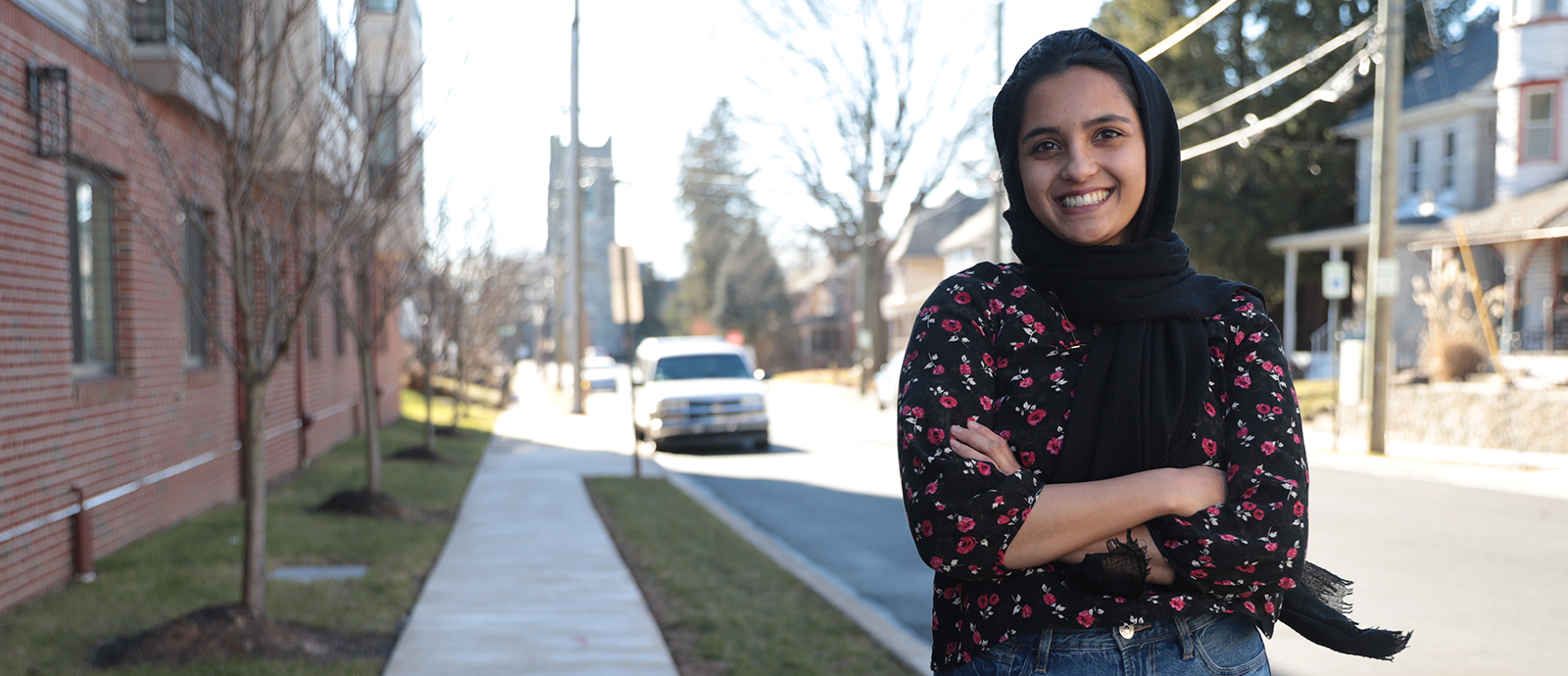 Fauzia Saiyed
Fauzia Saiyed
Third-year Doctoral Student
Counseling Psychology
As an undergraduate student at McGill University, Saiyed participated in lab work involving toddlers and screen learning and became interested in the psychology of parenthood. It was her first exposure to an area of psychology relating to the early pregnancy and perinatal period.
“During pregnancy, most practitioners are focused on the health of the infant,” she says. “But women often lack the same level of care.” For example, depression is common during pregnancy and afterward, but oftentimes mothers, especially those from socially marginalized groups, do not receive adequate screening and treatment.
Saiyed is focused on two spheres where she hopes to gain positive traction. Clinically, she is working directly with pre- and post-term mothers at Penn Medicine. Her research focuses on supporting mothers exposed to community violence. She presented her findings at an American Psychological Association conference this past summer. On campus, she is actively building reproductive justice dialogues as part of the Center for Gender Equity.
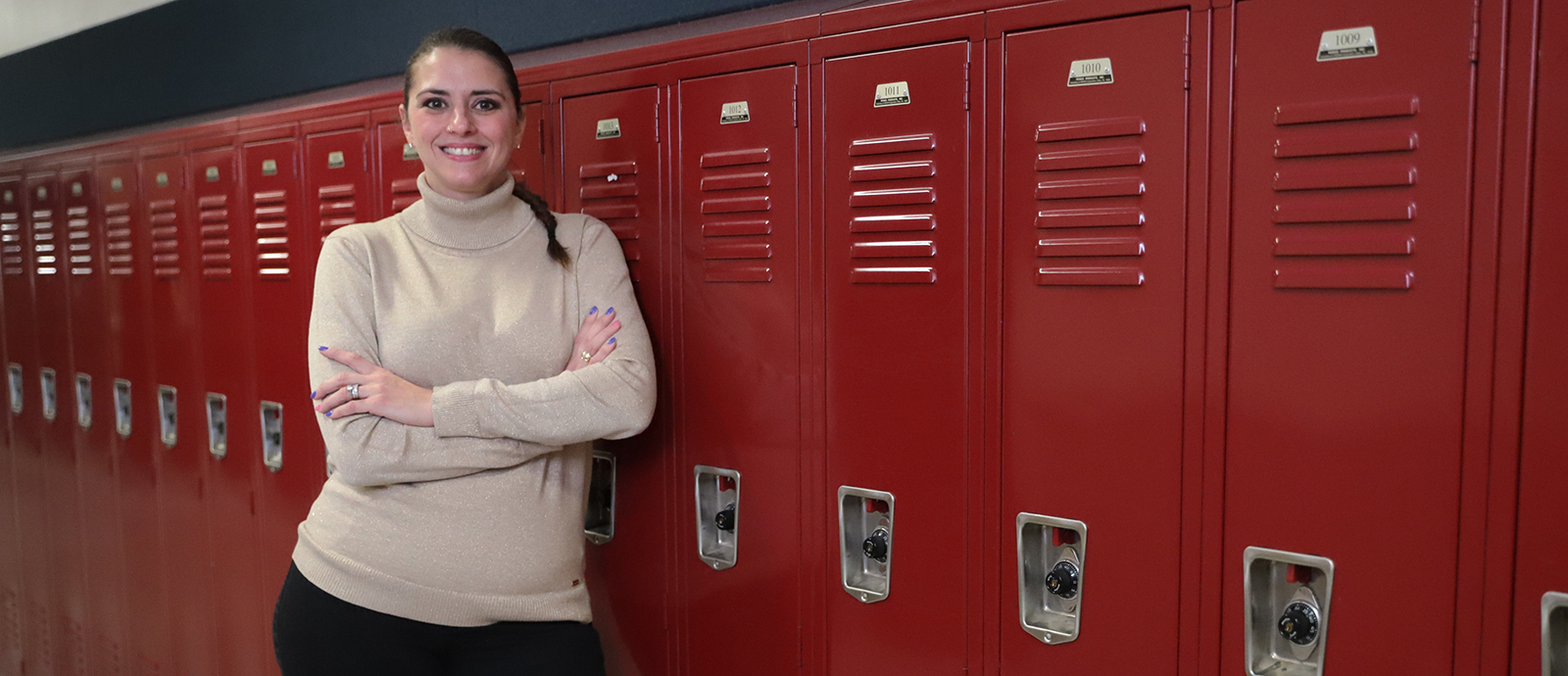 Toni Derrington
Toni Derrington
Second-year Master’s Student
Education Leadership and Urban Principal Academy
Urban schools often face social and economic struggles and are not a place for the weak. Liberty High School in Bethlehem has about 2,800 students who are supported by four student service centers, each staffed by an assistant principal and three guidance counselors. As the school’s only social and emotional learning (SEL) coach, Derrington is in one of those centers. The pandemic experience led the district to reevaluate its approach to mental health and wellness and make its investment in SEL more intentional.
“COVID caused many teachers to burn out, but it lit a new fire inside me,” she says. Drawing on her 17 years as a middle school history teacher, Derrington uses her endless energy to connect with students and guide colleagues. She also began to pursue her second master’s degree and principal certification.
“I want people to understand that it is OK not to be OK,” she says. “We all have days we cry in the shower, and urban teachers and students are in the thick of it. I know I can help realize real change.”
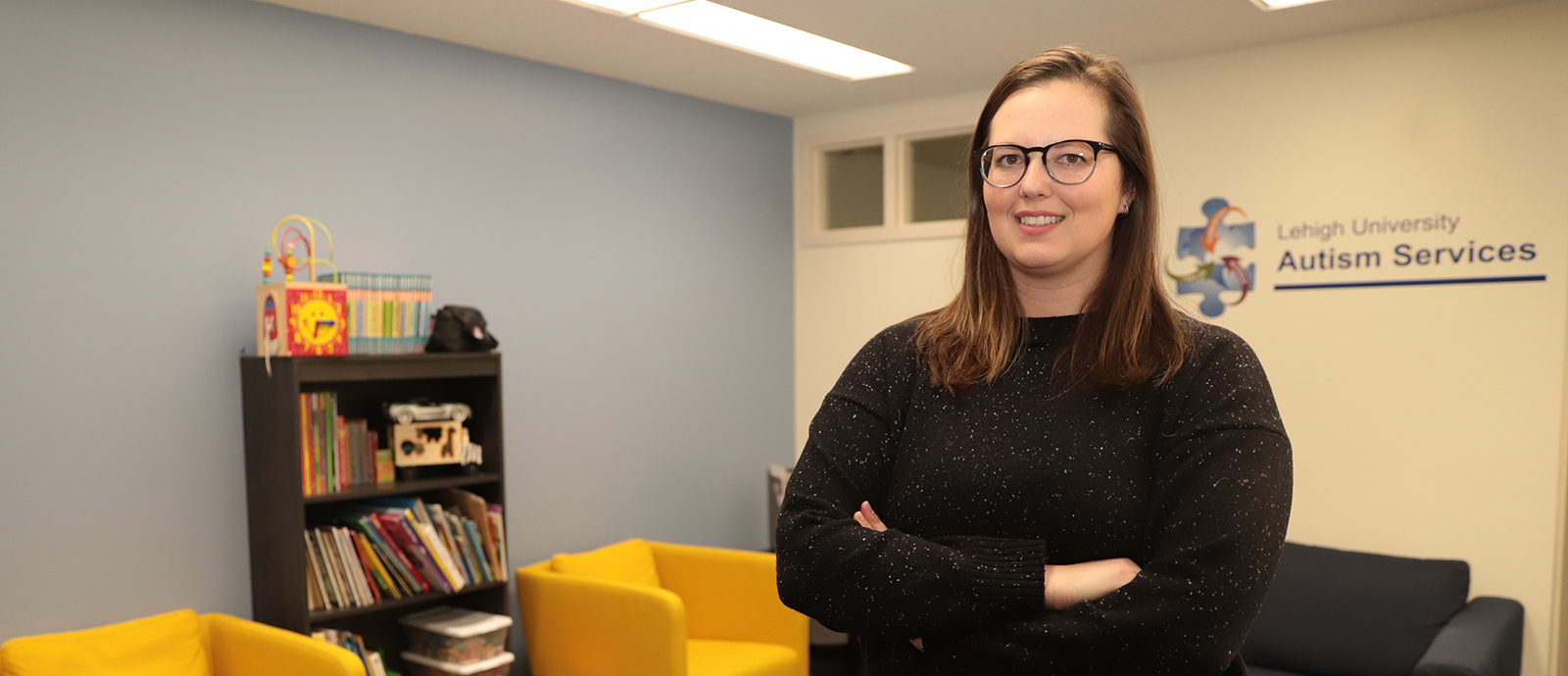 Elise Settanni
Elise Settanni
Fifth-year Doctoral Student
Special Education
With her parents both working as teachers, Settanni set out not to be an educator, but within six months of graduating with her undergraduate degree in psychology, she started to earn her teaching certification. The change of heart came while working with children with autism one summer as well as serving as a second set of hands in her mother’s special education classroom.
Settanni has now worked for 16 years with children with autism. She started full time in 2022 in the Autism Clinic at Lehigh as a board-certified behavior analyst, providing intensive interventions for children at home, school, and the clinic.
This is also her area of research. For decades school districts have pushed to integrate students with disabilities into the general education curriculum and classrooms, but not much has been done to improve interactions with the teacher or other students. “It’s crucial to educate others in the classroom to better understand what they might encounter and how to best engage with these students with disabilities,” she says.
She has three research articles under review by publications and is beginning to recruit subjects for her dissertation study. She also mentors other Ph.D. candidates in the special education program and sits on several committees for the College of Education, including the graduate research advising committee, Lehigh sustainability council, and council for exceptional children.
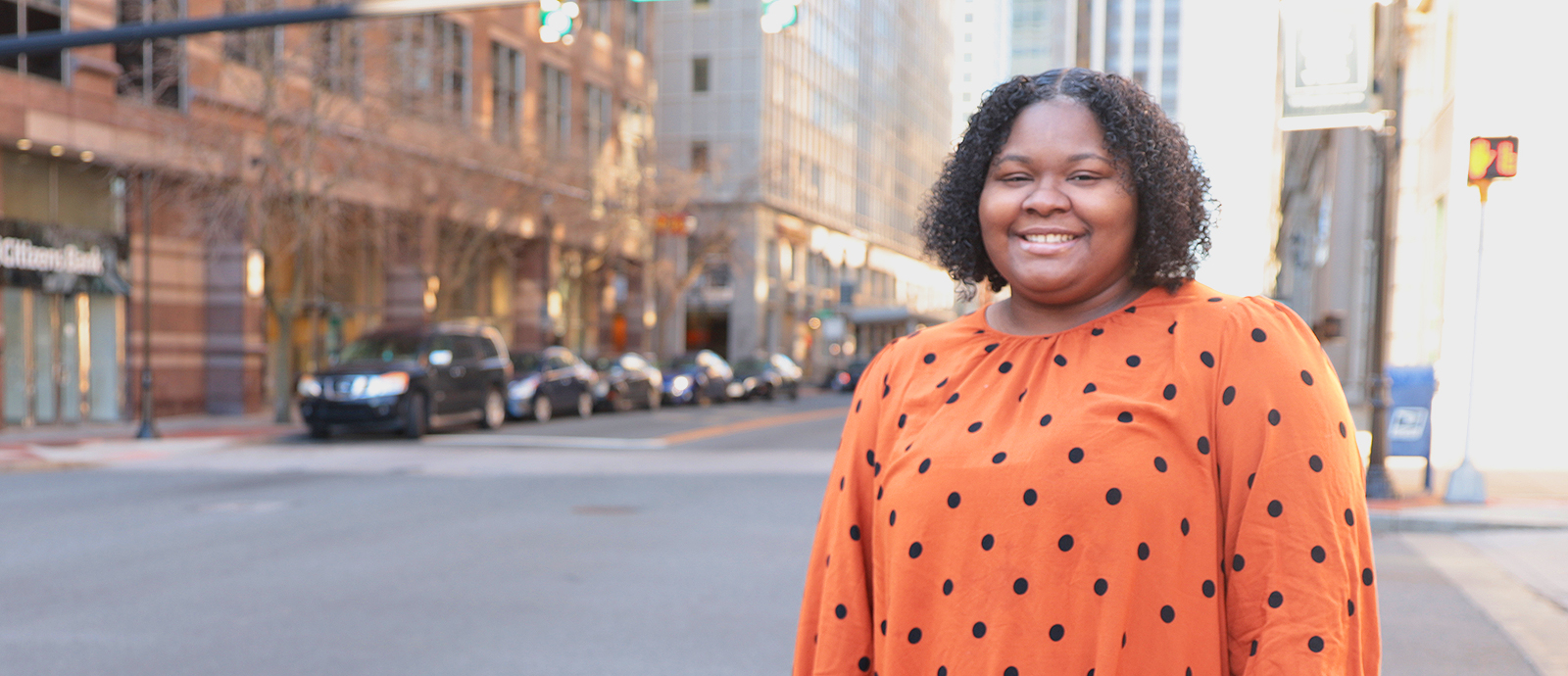 Kristina Washington
Kristina Washington
Fifth-year Doctoral Student
School Psychology
Washington first began working with children in her mother’s home-operated daycare. It was there that she saw the range of needs from behavioral health to resource scarcity to familial incarceration. As a systems-level practitioner, she now is hoping to create universal supports and interventions that can disrupt the school-to-prison pipeline.
“Educational policies impact our society as students with disabilities, minoritized identities, and past trauma more often receive school discipline that can eventually move them into the juvenile justice system,” she says. Recidivism rates indicate that adult incarceration for those students is nearly inevitable. Washington is working to educate schools and school resource officers on the markers to look for in order to intervene rather than accelerate that pipeline. On campus, she also leads Students Speak Up, a graduate-level support group where students educate themselves on racial injustice and become anti-racist and equity advocates.
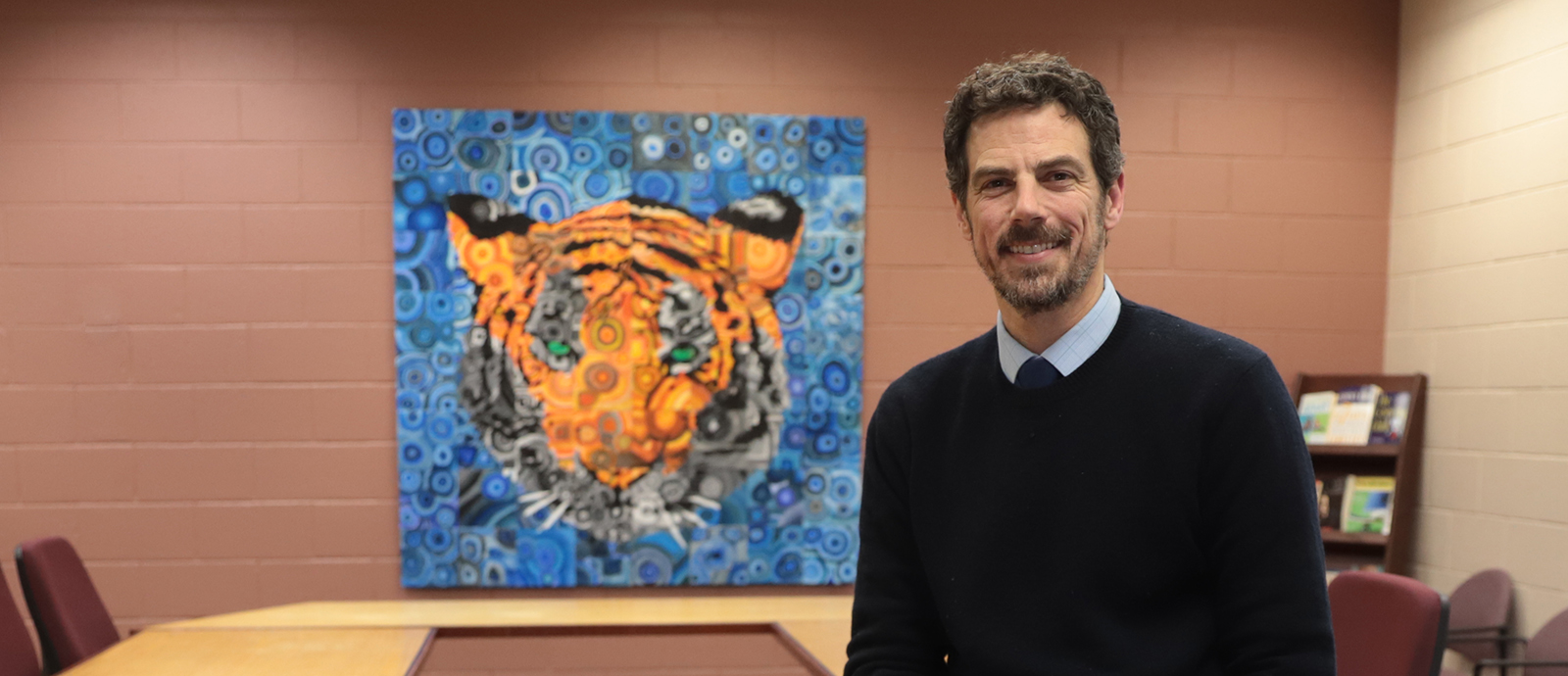 Adam Schmucker
Adam Schmucker
Sixth-year Doctoral Student
Educational Leadership
As an elementary education undergraduate student, Schumcker graduated in December and didn’t expect to land a teaching position in the middle of the school year. So he headed to the mountains of Colorado to find work and see what the future could bring. Within a few days of arriving out West, he had a job in a local school district supporting children with emotional disturbances. Soon he transitioned to a classroom setting and earned a master’s degree in bilingual education at the University of Colorado at Boulder.
He and his young family returned to Pennsylvania in 2006 where he taught fifth grade for a few years and then served as a middle school assistant principal and then elementary principal in Quakertown. “A principal is not a position at the peak of a triangle,” he says. “Rather it is at the nexus of relationships and interactions among families, teachers, students, support staff, district leaders, and even state standards.”
Those relationships supported him as he was nominated for and recognized as Pennsylvania’s 2018 National Distinguished Principal by the National Association of Elementary School Principals. Schmucker serves as adjunct faculty at Lehigh as well as a principal mentor in Lehigh’s Residential Experience for Aspiring Leaders (REAL) program.
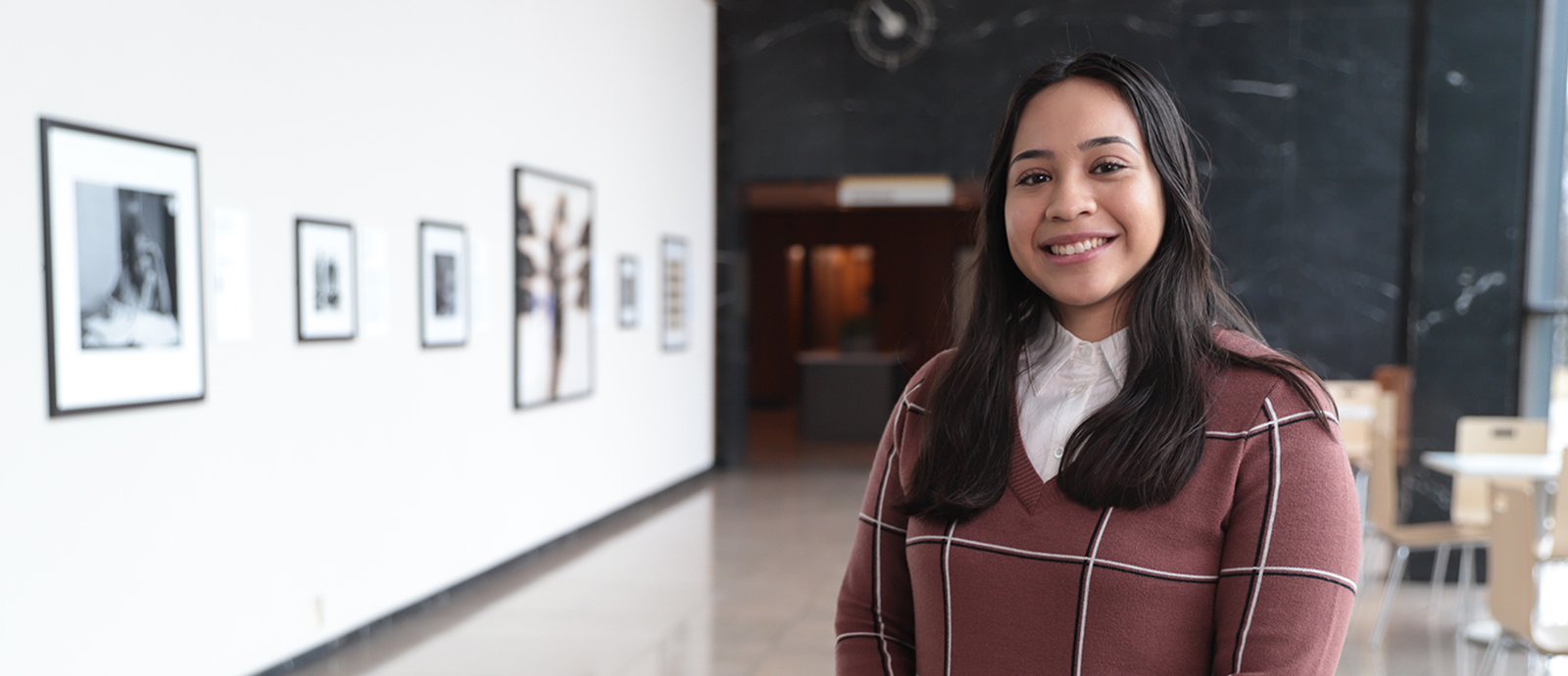 Raquel Sosa
Raquel Sosa
Fourth-year Doctoral Student
Counseling Psychology
Sosa was a first year undergraduate studying psychology when a family member attempted suicide. In supporting her loved one afterward, Sosa saw how few services existed for bilingual families that reside in Northeast Pennsylvania. She is now dedicated to understand, research, and assist youth who are developing their own sense of critical consciousness as they become aware of the systemic inequities they face and learn how to discuss those inequities and advocate for themselves.
Sosa has presented her qualifying research about the impact of the campus climate on the mental health of Latinx students at notable conferences including the American Psychological Association and National Latinx Psychology Association. She also provides free mental health services in Bethlehem to middle and elementary school students who are experiencing trauma, depression, anxiety, stress, and behavioral issues. This work will help her dissertation as she plans to study early intervention at the middle school level. Sosa is also a fellow for the American Association of Hispanics in Higher Education where she is receiving support to prepare her for a career in academia.